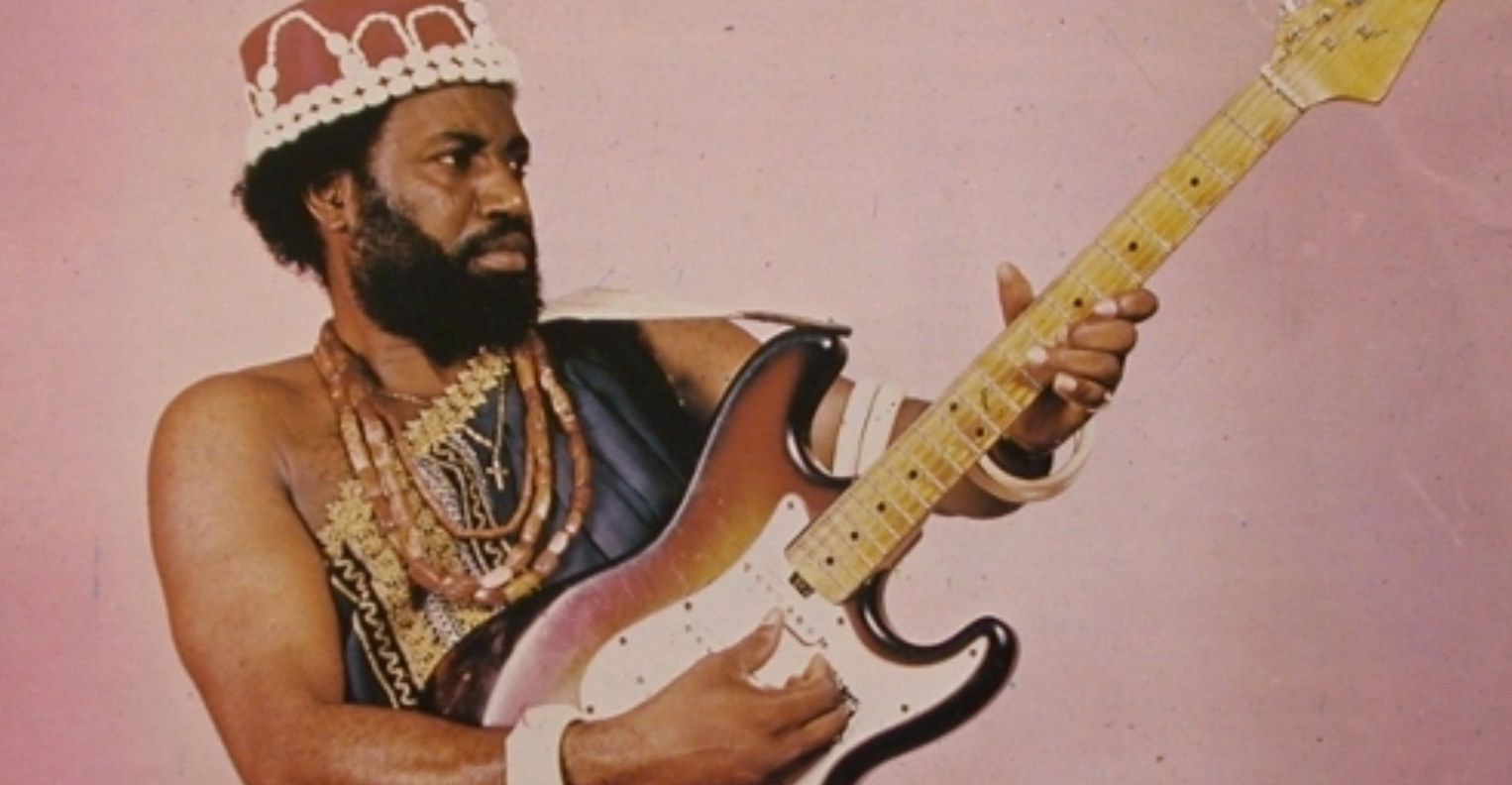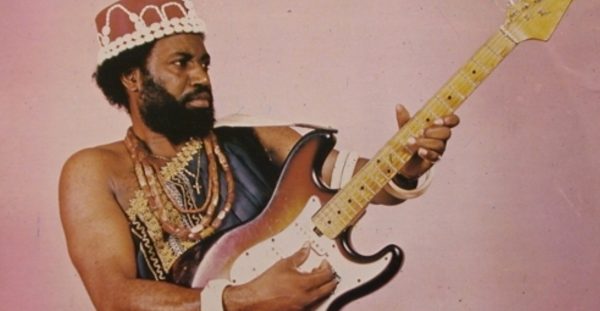Before 1967, highlife music was the most popular genre of music in Nigeria. It was in high demand in elite circles in Lagos, the then capital of Nigeria.
The popularity of this genre only began to dwindle following the breakout of the Nigerian Civil war in 1967, which forced most of the progenitors of highlife to retire to their home states in the South. Highlife’s place was thereafter taken over by Juju music and Afrobeat in the West of Nigeria.
Although the likes of E.C Arinze and Bobby Benson may have introduced the music genre, the following people (among others) made it popular.
Sir Victor Uwaifo

BellaNaija
Sir Victor Uwaifo is famous for his hit song “Joromi”. Another song that was also very popular is “Guitar Boy”, which was inspired by what he claims to have been an encounter with a mermaid spirit at Lagos Bar Beach.
He first played in a band led by highlife icon E.C Arinze and was groomed by the legend. Uwaifo also worked with the likes of Stephen Osita Osadebe before setting up his own band in 1965 called the “Melody Maestros”.
Uwaifo was the first Nigerian to win a Golden record. He later won a total of 12 golden records, performed in many countries, including the US, Russia, U.K, Japan, Germany, and France.
He was appointed a Member of the Order of the Niger by the federal government of Nigeria and served as commissioner for arts and culture in Edo State between 1999 and 2007.
Victor Olaiya

The Point
Victor Abimbola Olaiya was born in Calabar in 1930. Olaiya pursued a career in music to the dismay of his parents, and played in the Sammy Akpabot band and led the Old Lagos City Orchestra, and then the Bobby Benson Jam Session Orchestra, before founding the “Cool Cats”.
Olaiya and the “Cool Cats” performed at the state ball during Queen Elizabeth II’s visit to Nigeria in 1956, at Independence in 1960 and again when Nigeria became a republic in 1963, sharing the stage with Louis Armstrong. He also performed for the United Nations troops in Congo.
The legendry Afrobeat king, Fela Kuti, played at some point with Olaiya’s band before achieving individual success.
Nelly Uchendu

PicClick
Nelly Uchendu an Igbo highlife, gospel, singer, composer, and performer. Popular for modernizing traditional Igbo folk music, Uchendu rose to prominence upon the release of her 1976 song “Love Nwatinti” which earned her the “Lady with the Golden Voice” sobriquet. Her other songs include “Mamausa” and “Waka about”.
Rex Lawson

Premium Times Nigeria
Rex Jim Lawson, also called Cardinal Rex Lawson, was one of Nigeria’s most popular highlife musicians in Nigeria.
He began his music career in Port Harcourt and was a trumpeter for a number of bands before leading the “Majors Band”, also referred to as “Rivers Men Band”. He is known to have introduced alto saxophone lead at a time when trumpets were most often used as a lead in the highlife music genre. He is also known to be a very emotional performer.
Among the hundreds of songs done by this highlife icon are “So ala teme”, “Yellow Sisi”, “Sawale”, “Love Adure” and “Jolly Papa”. “Sawale” was perhaps his biggest hit. It was remixed in various African counties including Ethiopia. Flavour N’abania is the latest artiste to have remixed the song in his hit song “Nwa Baby”.
He died in 1971 in a car accident at only 36 years of age, but his band carried on with a new name; “Professional Seagulls”.
Oliver De Coque

National Daily
Oliver de Coque was an Igbo highlife musician and guitarist. He is said to be the most popular Highlife King of Africa. With a staggering excess of 73 albums released during his lifetime. His music characteristically was replete with adulation for notable and influential Igbo people in a blend of modern highlife and traditional Igbo music.
de Coque began playing instruments at 17 and put together the “Ogene Sound Super of Africa Band”, with which he performed throughout his career.
His greatest hits are “People’s club of Nigeria”, “Otimkpu” and “Mbiri ka mbiri”.
Osita Osadebe

Flickr
With a career spanning over 40 years, Chief Stephen Osita Osadebe is no doubt one of the most remarkable fathers of Highlife.
His best-known song is the 1984 hit single “Osondi Owendi”, meaning “One man’s meat is another man’s poison”. He learned much of his musical skills playing in E.C Arinze’s Empire Rhythm Orchestra, like Victor Uwaifo. Osadebe’s first album was in 1958, and by 1986, at the age of 50, he had begun to wind down his career, giving priority to family.
Sources:
Featured image source: Flickr


